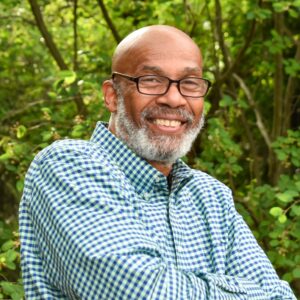
When I graduated high school, my Dad asked me what I intended to do. I informed him that I was looking for a job and excited about finally being able to go straight to work. He suggested instead that I go to college at Morgan State University and enroll in the ROTC program. I loved my father deeply so I took his advice.
When the school counselor asked me to state my intended major, I was informed that Military Science would not fulfill that requirement because although there was a Military Science department, there was no major in that field. It was my freshman year, and I found nothing of interest in any major degree field. At the start of my first semester sophomore year, I decided to not look for a major! I chose instead to take classes that piqued my interest and that I thought I would enjoy. There was one class being offered that I found appealing and intriguing. It was called Introduction to Religious Studies through the Study of World Religions.
It was taught by renowned Yale scholar, Rev. Dr. Herbert O. Edwards. It was a fascinating class and Rev. Dr. Edwards was a brilliant instructor! The dialogue was rich, the perspectives were diverse, and the cultural and religious insights were enlightening. We studied Buddhism, Taoism, Shintoism, Islam, Judaism, traditional African religions, and Christianity. I declared before the class and the semester was over that Religious Studies was my major.
I was not initially interested in becoming a pastor. I was not actively involved in church. I may have been perceived as a nice person, but I don’t think that I appeared to be overly religious. I also did not question the faith that I had accepted even though there were many things that I deemed profound in the various faith expressions we studied.
What moved me to appreciate the discipline of interfaith exploration and study was the humanity of it all. I felt at that young age that, despite the theological and cultural differences that were so obvious on the outside, people are generally very much the same on the inside. I sensed in the core beliefs of the religions we studied a desire for virtue, truth, love, peace, community, respect for nature, self care, care for others, and a general desire for the wellbeing of this world. Instead of variation, I found the same beauty and joys that I’ve found in different cuisine, music, languages, and the diversity and newness that can be found through travel. It helped me realize the world is a beautiful place, as are the people in it. And not so much in spite of our diversity, but very much because of it.
My interfaith studies also helped me realize the impossibility and the absurdity of limiting God to my own theological box or the confines of anyone else’s. God is the Omniscient One—not us. I grasped that just like I can learn from practitioners of my faith, I can also learn from adherents of faiths other than my own.
It was after that first introduction into world religions that I began reading the Holy Qur’an. When that class ended, I began to delve into the Eightfold Path and the four Noble Truths of Buddhism. Then I became intrigued with Taoism and Hinduism and more exploratory of the influences and contributions of African culture and its contributions to the world. That class brought me closer to God in a way that was broader, richer, and more embracing of everyone.
And what I find most interesting is that as it helped me appreciate the gifts that are offered in the religious beliefs of others, it also helped me to become more committed to and more appreciative of my own faith. It inspired me to want to explore and understand my own faith more.
It helped me see that faith is organic, or maybe it should be, because every religion develops and transitions over time. It is very similar to the way our faith remains steadfast, yet develops and transitions as we go through the different stages of our lives. Studying other religions and having healthy relationships with people of other faiths has helped me experience a better quality of life in my own faith expression.
Finally, I realize as I look back, interfaith dialogues and relationships help me with my humanity. It helps me to be a better person. At the end of the day, I realize by listening to the viewpoints of others and learning about their love of God and other human beings, that the goodness of God dwells within ALL of us, and EACH of us has something beautiful that God has placed in us for the world. So, whatever your religion, and wherever you stand in your relation to God…Pleased to meet you.
Rev. Walter D. Jackson, III is pastor of Chase United Methodist Church and was a member of the 2023 ICJS Congregational Leaders Fellowship. Learn more about the ICJS Congregational Leaders programs here.
Opinions expressed in blog posts by the ICJS Congregational Leader Fellows are solely the author’s. ICJS welcomes a diversity of opinions and perspectives.
